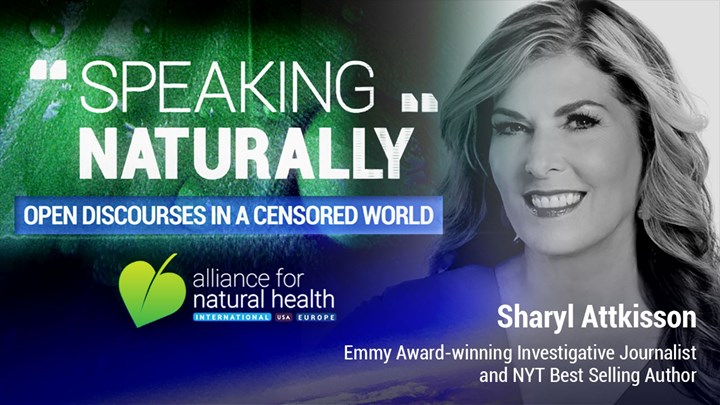Content Sections
Before Covid-19 entered our vocabulary, we were surfing on the crest of a wave in our understanding of human health and its intimate connection with the natural world. We had already strayed from the idea that our genome was a fixed blueprint, one in which our environment, both internally and externally, decides what tune our genome will play. It is our environment that controls how our genes are expressed, and it’s gene expression, ultimately, that determines our health.
What on Earth…
Then in comes Covid-19 and all seems forgotten. The new measures seem intended to make us feel it’s outside where the danger lurks – that the only safe havens are our homes. We’re taught to become fearful of this new coronavirus – that venturing outside will invite danger, whether or not we keep our distance from others.
None of that makes any sense scientifically. It’s as if we’ve thrown the science books and those decades of learning away, while we’re meant to blindly accept governments and health authorities at their word, that all the Covid-19 measures that we we’re being forced to incorporate into our lives are driven by science.
-
Find related articles, information and videos in our Covid Zone
In the pre-Covid era, we had entered the world of precision and personalised medicine. The work on the gut microbiota and microbiome spawned a new understanding of the seminal importance of our relationship with the microbes within us and around us. Epigenetics was maturing as a science and we had come to learn just how important our environment is to our overall state of health and wellbeing, and we were moving towards understanding the need for systems-based and sustainable approaches to health care. As we at ANH-Intl have long upheld, it is a universal ecological understanding of human health that will contribute to major improvements in healthspan going forwards.
Everything’s on pause…
But in so many ways, the emergency measures declared since the discovery of Covid-19 have forced us backwards. At a time when antimicrobial resistance has reared its head as one of the most significant problems facing healthcare, health authorities have engendered more fear of the microbial world. All of this drives wider use of disinfectants around homes and outdoor spaces. Less time with each other and our loved ones, facing job losses, financial ruin and unprecedented levels of disease-inducing stress. And the spectre of sidelining all the other diseases with which the healthcare system had previously been so busy handling, the impact of which will become clear in the months ahead.
Let’s get a grip – and remind ourselves that it’s time to adapt to this new virus and get on with life.
Let’s move forward, informed by our greatest teacher: nature.
Four things you benefit from when you spend time outdoors
- Vitamin D – by exposing your body to sunlight you increase your circulating levels of 25(OH)D that converts to the active form, 1,25-dihydroxyvitamin D3 which is critical to immune system function
- By taking prolonged rhythmic exercise outdoors (e.g. walking, cycling, gentle jogging), the body upregulates production of endocannabinoids and these bind to cannabinoid receptor 2 (CB2) that enhances immune tolerance
- Being outdoors allows us to be exposed to microbial diversity with which we’ve had exposure through the majority of our evolution, that enhances our immune resilience. This mechanism is referred to as the ‘old friends mechanism’ and is increasingly considered by scientists a better reflection of what happens than the ‘hygiene hypothesis’
- Being outdoors allows us peace of mind. Scientists are applying themselves now to understanding how reduced work pressure for some during the lockdown has facilitated more time in nature benefiting especially those living in heavily crowded urban areas. Time in nature is known to benefit mental health
- Long-term exposure to unpolluted air reduces our susceptibility to Covid-19, the reverse, obviously, also being true. A number of studies have shown clear correlations between high air pollution levels and Covid disease. This includes studies in the USA and China.
How lockdown is improving the quality of our environment
There are many things we can learn from nature, including learning what happens when we interfere with it less, as has been the case during the global lockdown.
Three interesting facts:
- China’s carbon dioxide emissions have reduced by one half, and the pandemic is set to cause the largest ever fall in carbon dioxide emissions
- The Sentinel-5P satellite sent back some fascinating images showing the reduction in nitrogen dioxide (NO2) air pollutant levels above Europe, China and Italy during the pandemic
- A few may have been lucky enough to see goats roaming Welsh streets!
For more information, visit ANH-Intl’s Covid Zone








Comments
your voice counts
There are currently no comments on this post.
Your voice counts
We welcome your comments and are very interested in your point of view, but we ask that you keep them relevant to the article, that they be civil and without commercial links. All comments are moderated prior to being published. We reserve the right to edit or not publish comments that we consider abusive or offensive.
There is extra content here from a third party provider. You will be unable to see this content unless you agree to allow Content Cookies. Cookie Preferences